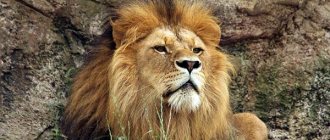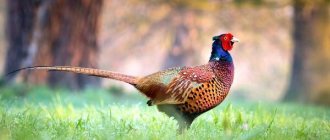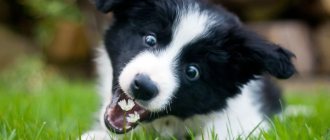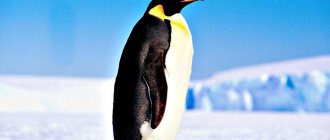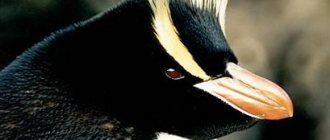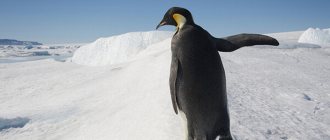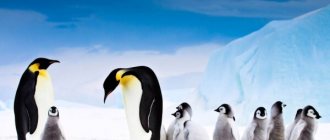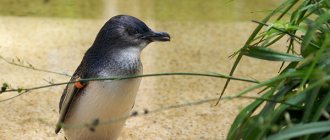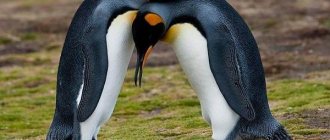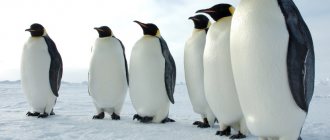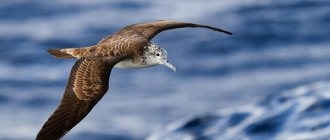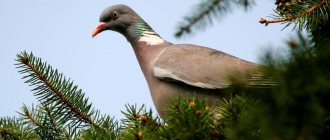Emperor penguins are quite large in size, and they are considered the most ancient birds belonging to this family. If their name is translated from ancient Greek, it means “wingless diver.” Penguins are not only characterized by interesting behavior, but also have a unique intelligence. They spend a lot of their time in the water column. This type of penguin is protected by international laws, since the number of individuals does not exceed 300 thousand individuals and the number of these unique birds is constantly declining.
Emperor penguin: description
Emperor penguins, oddly enough, belong to the class of birds and represent the order Penguinidae and the penguin family. They are classified into a separate genus, as well as a species called Emperor Penguins.
During Bellingshausen's research expedition in 1820, members of the expedition saw these unique birds for the first time. Despite this fact, the first memories of penguins date back to 1498. In this distant historical time, explorers Vasco da Gama sailed off the African coast and Magellan, who saw these birds in 1521, when he was off the coast of South America. At this time, penguins were considered geese, and only in the 16th century were these birds given the name “penguins.”
The study of the development and evolution of these birds led experts to determine that the ancestors of penguins at one time were found within New Zealand, South America and the Antarctic Peninsula. In addition, the remains of the ancient ancestors of modern emperor penguins, who lived in the past in Australia and Africa, were discovered.
Having studied the remains of penguins, scientists came to the conclusion that they existed on our Planet about 45 million years ago, and this is the end of the Eocene period. After studying the remains, it was found that the ancestors of modern penguins were larger in size. In their opinion, the largest representative is considered to be the Nordenskiöld penguin, whose body reached the size of a human body, with a body weight of about 120 kilograms.
In addition, it was possible to establish that the ancestors of modern penguins did not live in the water column, since they had developed wings and felt great in the air. Penguins, according to a number of characteristics, are considered more relatives of tubenoses, so it is believed that they had common ancestors. Penguin research was carried out by various scientists from many countries. In 1913, Robert Scott, as part of an expedition, went to Cape Crozier, where he was lucky enough to obtain several eggs of these birds. As a result, it was possible to study in more detail the process of embryonic development of penguins.
Antarctica. Emperor penguin
Appearance and features
Adult penguins generally grow to a length of up to 120 cm, although there are individuals with a body length of up to 140 cm. The average weight of penguins is within 40 kilograms. As a rule, females are smaller than males and their average height does not exceed 110 centimeters. This type of penguin is characterized by fairly developed muscles, as well as a pronounced thoracic region of their body.
Emperor penguins have a fairly contrasting body color, and at the same time it is quite attractive. The back area is black, and the lower part of the body is white. The neck area and the area around the ears are colored bright yellow. Such body coloring allows these birds to remain unnoticed in the depths of the sea. The shape of the body allows penguins to develop considerable speed in the water, while they dive quite deeply.
Interesting to know! Depending on the season, the color of these birds may vary. With the onset of November, the black color is replaced by a brown tint, which persists until the onset of February.
The offspring that are born are characterized by the presence of white or light gray plumage. The head is small, round in shape and black in color. The eyes are relatively small, but the beak is quite powerful and relatively long. The neck area practically does not stand out, as it practically merges with the body. The chest area stands out against the general background, while it smoothly transitions into the abdominal area.
On both parts of the body there are “wings”, which in modern penguins serve as fins. The lower limbs have three fingers, armed with membranes and powerful claws. The tail is relatively small. As for the structure of bone tissues, they are not hollow, like in most birds. There is another characteristic feature - in the lower extremities, the blood vessels are equipped with the function of regulating heat exchange, which helps to conserve heat. The body of penguins is covered with fairly dense and high-quality plumage, which allows them to feel great in such difficult conditions of Antarctica.
Where does the emperor penguin live?
The only geographical point on our planet where emperor penguins live is Antarctica. Within this territory, penguins can be found in groups of tens to hundreds of individuals. There are quite large groups, which include up to several thousand of these birds. Basically, they prefer to be on the edge of the continent, where there are many ice blocks. During the breeding season, they return deeper into the mainland.
Experts were able to establish that there are 37 colonies of similar birds in Antarctica. As a rule, for their livelihoods, birds choose areas of territory that serve as a kind of protection, both from natural enemies and from stormy and cold winds. Therefore, it is not at all surprising that groups of penguins hide behind piles of ice blocks, behind snow drifts or behind cliffs. In addition to certain protection, one of the conditions for choosing sites is free access to water.
It is important to know! Groups of birds that cannot fly live between 66 and 77 latitudes south. The largest colony of penguins, numbering about two tens of thousands of individuals, is concentrated in the area of Cape Washington.
Emperor penguins are also found:
- Within the Taylor Glacier.
- Within the domain of the Queen of Fashion.
- On Heard Island.
- On Coleman Island.
- On Victoria Island.
- In the South Sandwich Islands.
- Within Tierra del Fuego.
What does it eat?
Given the fact that Antarctica has a cold enough climate for other species to live, penguins feed on what they can get in the sea. They spend about two months a year at sea.
Important point! Emperor penguins are excellent swimmers and divers. They dive to a depth of up to half a kilometer, holding their breath for almost half an hour.
It should be noted that the clearer the water at the diving site, the deeper the penguins dive, since underwater they navigate only with the help of their vision. When hunting, penguins accelerate to a speed of 7 km/h. As a rule, their diet consists of a variety of fish and other marine life, including mollusks, squid, oysters, crustaceans, krill and plankton.
As a rule, penguins hunt in groups, attacking schools of fish. There are no hunting tactics, so they quickly grab everyone who did not have time to escape. If the prey is small, then the penguins swallow it on the spot, and if they catch large prey, then they have to drag it ashore and, tearing it into pieces, eat it.
While at sea in the process of hunting, these birds travel several hundred kilometers, and they are not afraid of severe frosts and piercing winds. To find food for themselves, penguins spend a lot of energy. They often have to dive up to five thousand times during the day. Penguins have a unique structure of the oral cavity, represented by spines directed into the cavity. Thanks to this structure, birds easily hold their prey.
Character and lifestyle
Penguins prefer to live in large groups. This is not at all surprising, since it is practically impossible to survive alone in such harsh natural conditions of Antarctica. Married couples are formed once and for life.
Important fact! Penguins differ from other species of birds in that they do not know how to build nests for themselves.
In such conditions, they lay eggs and raise their offspring in natural shelters such as rocks, cliffs, ice, etc. If they spend a total of about two months at sea, then they spend the rest of the time raising their offspring. Penguins are considered excellent caring parents, which indicates a highly developed parental instinct.
While on land, penguins move using their hind limbs, which cannot bend at the knee joints. Because of this, their gait looks very awkward and leisurely. They also move on their stomachs, helping themselves with their front and hind limbs. But in water they feel much more comfortable, they can dive deeply and move at speeds of up to 10 km/hour. Their appearance on land looks impressive when they emerge from the water to a height of several meters.
Penguins are quite cautious birds, including timid ones. In case of danger, they rush in different directions, leaving their offspring and eggs to the mercy of fate. As for people, penguins are not afraid of them at all and make contact. Not only are they not afraid of people. But they can allow a person to touch them. Matriarchy reigns in bird colonies, so females control all processes. They choose sexual partners for life, seeking constant attention from males. Males incubate the eggs, and females go hunting.
Emperor penguins can easily withstand severe frosts and hurricane winds thanks to their developed fat layer, as well as dense and dense plumage. The birds keep warm by forming an impressive circle. In this circle, the temperature rises to plus 30 degrees when it is minus 30 degrees outside. As a rule, the cubs are always in the center of the circle. Adults change places, moving closer to the center of the circle, and when they warm up, they move away from the center of the circle, giving other individuals the opportunity to warm up.
Reproduction and offspring
Penguins form married couples once and for life, and the initiator is always the female. She chooses a male, leaving no chance for other males, after which she begins to court him. She lowers her head, spreads her “wings” to the sides and accompanies this process with vocal variations. The male has no choice but to “sing along” with the female. They recognize their chosen ones by their voice, but try to communicate with each other quietly, so as not to interrupt other couples. Such courtship lasts for almost a whole month, with the couple walking after each other with their beak thrown back up. After a series of mutual bows, the birds begin the mating process.
At the end of April/beginning of May, the female lays only one egg, weighing a little more than 400 grams. Before laying an egg, the female fasts for one month. As soon as she lays an egg, she goes to sea to find food for herself and gain strength. She can stay at sea for about two months, and during this time the male looks after the egg. The male lays the egg on the skin folds located on the lower limbs. When the male presses his leg against his leg, the folds of skin form a kind of pouch. The male keeps the egg in this bag, not paying attention to either the stormy wind or severe frosts. The main threat comes from unmated adult males. In a fit of aggression, they can take the egg from the future father and break it.
Over the course of two months, when the female is at sea, the male loses a lot of weight and calls for the female, experiencing a feeling of terrible hunger. It is at this moment, when it would seem that all strength is running out, that the female returns with food supplies for the baby. After this, the male goes to sea to replenish his supply of nutrients. He has been at sea for almost a month.
Once born, the chick is not able to survive on its own in such harsh climatic conditions. For the first two months, he is in the warm and cozy pocket of his parents, where the temperature reaches plus 35 degrees. If for some reason the cub falls out of this pocket, inevitable death awaits it. With the onset of northern summer, the cubs begin to independently learn to swim and get food for themselves.
Natural enemies
Living in wild conditions, penguins do not have many enemies, especially when the birds are not at sea. When they find themselves at sea, they can expect to encounter leopard seals and killer whales.
Large marine predators in the form of skuas and petrels pose a significant danger to young penguins, although they are not at all dangerous to adult penguins. According to experts, about 30 percent of penguin babies die from attacks by these large predatory sea birds. As a rule, single chicks are susceptible to attack. To increase their chances of survival, penguins form a kind of nursery, where the young are under the supervision of nannies.
Humans pose an equally serious threat to the species. Since the 18th century, humans have been exterminating these birds, whose nests are located in the coastal zone. Due to the actions of poachers, emperor penguins are on the verge of extinction.
Large toad, 3 letters
- Word search
- Crossword answers
- Large toad, 3 letters
/
/
yeah
The word "aha" consists of 3 letters:
- first letter A
- second letter G
- third letter A
Look up the meaning of the word “aha” in the dictionary.
Alternative definitions for the word “aha”, a total of 73 variants were found:
- "Snickering" Turk
- “Amenable” elder
- "Titled" toad
- “The bullet flew by and...”
- "Yes" (colloquial)
- "Yes" in common parlance
- "Yes" colloquially
- Aginskoe
- Rich Turk
- In Sultan Turkey, the title of military commanders
- The Sultan was considered the supreme commander of the Janissary army, but he exercised tactical leadership
- Warlord of the Janissaries
- To all toads, toad
- Giant toad
- Mister in Turkey
- Mister Turk
- The border of an estate park or garden, which looks like a shallow ditch with a retaining wall, which is not visible from the estate and has a gentle slope towards the park
- Water rat game
- Toad
- Toad "with a title"
- The toad is large and poisonous
- Toad as food for crocodiles
- giant toad
- Toad for lunch for crocodiles
- Toad in Turkish service
- Toad homograph interjection
- Toad up to 20 cm in size
- Toad with arrow poison
- Toad is a giant
- Toad, game of crocodiles
- Giant Toad
- Prosperous peasant in Turkey
- Wealthy Turk
- Amphibian of the toad family
- Noble Turk
- Janissary commander
- Large amphibian of the toads
- Kurkul from Turkey
- Left tributary of the Onon
- adv. zap., ege maloros. (letter g pronounced in southern, aspirated) yes, of course, okay. Ti byv en tamaski? - “Yeah” resins. Yeah, agatha interjection. resins of amazement. ah, ah, ba. Yeah interjection. celebrations a-a
- Unintelligent "yes"
- Huge toad
- Ottoman
- Ottoman officer
- Officer in the Ottoman Empire
- Janissary officer
- Palindromic "yes"
- The story of the Azerbaijani writer Suleyman Veli ogly Veliyev “Mustachioed...”
- Leader of the Janissaries
- Vernacular "yes"
- Vernacular agreement
- Spoken “Yes!”
- River in Transbaikalia
- River in the Chita region
- A word of agreement
- Toad agrees with everyone
- The elder agrees with everyone
- Supertoad
- Warlords title
- Title of military commanders and chiefs of certain groups of court servants (in Sultan Turkey)
- The title of landowner, chief in feudal Turkey; person holding this title
- Title of Turkish commanders
- The titular toad
- tropical toad
- cane toad
- Turkish fist
- Turk, elder or toad
- Who has the most poisonous eggs?
- Respect for elders in the East
- Particle expressing agreement, confirmation
- Poisonous toad
- Poisonous toad in South and Central Africa
- Janissary commander
Queries that may be of interest:
- Words starting with "a"
- Words with "a" at the end
- Words starting with "ag"
- Words ending with "ga"
- Words that start with "aha"
- Words ending with "aha"
- Make words from the word "aha"
Population and species status
Climate change, which leads to warming processes, plays a huge role in preserving the species. Warming is insidious in that rising temperatures lead to the melting of glaciers, which serve as a natural home for penguins. The loss of natural habitat is leading to a decline in the birth rate of emperor penguins. In addition, rising environmental temperatures lead to the extinction of various species of fish, mollusks and crustaceans, which form the basis of the penguins’ diet.
Humans also contribute to the reduction in the number of these unique birds by introducing themselves into their living space. Humans catch large quantities of fish and other inhabitants of the seas and oceans that constitute the diet of penguins, significantly reducing the food supply. After some time, the species diversity of the deep sea began to decline significantly.
Recently, people have begun to give preference to extreme tourism, which involves introducing thrill-seekers to the most inaccessible places on our Planet. Antarctica especially attracts such hobbyists, which leads to the clogging of emperor penguin habitats.
Contact with the local population. Emperor penguins
Emperor Penguin Guard
Emperor penguins are listed in the International Red Book because they were on the verge of extinction at the beginning of the 20th century. Nowadays, some protective measures have been taken that are aimed at maintaining the number of such birds, as well as increasing it. It is prohibited not only to kill penguins, but also to catch for industrial purposes some marine inhabitants living in penguin habitats. It is proposed to declare the eastern coast of Antarctica a protected area. This is done in order to preserve not only penguins, but also the marine life that is part of the penguins’ diet.
Other meanings of this word:
- “The bullet flew by and...”
- “The bullet flew by and...” (song.)
- "yes" (colloquial)
- "yes" in common parlance
- "yes" colloquially
- "Snickering" Turk
- “Amenable” elder
- "Titled" toad
- Aginskoe
- tailless amphibian family of toads
- Rich Turk
- Rich man in Turkey
- in Sultan Turkey the title of military commanders
- Janissary commander
- To all toads, toad
- Giant toad
- gentleman in Turkey
- Mister Turk
- the border of an estate park or garden, which looks like a shallow ditch with a retaining wall, which is not visible from the estate and has a gentle slope towards the park
- Water rat game
- game of young crocodiles
- Toad "with a title"
- The toad is large and poisonous
- Toad as food for crocodiles
- giant toad
- Toad for lunch for crocodiles
- Toad in Turkish service
- Toad homograph interjection
- Toad up to 20 cm in size
- Toad with Ottoman title
- Toad with Turkish title
- toad with arrow poison
- toad - giant
- Toad, game of crocodiles
- Giant Toad
- Giant Toad
- Giant Toad
- prosperous peasant in modern Turkey
- wealthy peasant in Turkey
- Wealthy Turk
- Amphibian of the toad family
- noble Turk
- Noble Turk.
- commander of the Janissary corps
- Janissary commander
- Large toad
- Large poisonous toad
- large poisonous toad in South and Central Africa
- Large amphibian of the toads
- Kurkul from Turkey
- left tributary of the Onon
- m. in the Turkish and Tatar regions, foreman, chief; attached to a word meaning what someone is in charge of; agi, agalary plural. h
- adv. zap., ege maloros. (letter g pronounced in southern, aspirated) yes, of course, okay. Ti byv en tamaski? - “Yeah” resins. Yeah, agatha interjection. resins of amazement. ah, ah, ba. Yeah interjection. celebrations a-a
- Unintelligent "yes"
- Huge toad
- Ottoman
- Ottoman officer
- Officer in the Ottoman Empire
- Janissary officer
- officer title in the Ottoman Empire
- official title in the Ottoman Empire
- Very large toad
- Palindromic "yes"
- leader of the Janissaries
- simple "yes"
- A simple “yes.”
- Vernacular "yes"
- Vernacular agreement
- Spoken “Yes!”
- Spoken "yes"
- A word of agreement
- Word of agreement (simple)
- Toad agrees with everyone
- elder agrees with everyone
- Supertoad
- Warlords title
- Title of military commanders and chiefs of certain groups of court servants (in Sultan Turkey)
- title of landowner, chief in feudal Turkey; person holding this title
- Title of Turkish commanders
- The titular toad
- tropical toad
- cane toad
- Turkish fist
- Turk, elder or toad
- who has the most poisonous eggs
- Who has the most poisonous eggs?
- will respect. attitude towards elders in the East
- Respect. attitude towards elders in the East..
- respect for elders in the East
- particle expressing agreement, confirmation
- this toad is a homograph interjection
- poisonous toad
- poisonous toad in South and Central Africa
- poisonous tropical toad
- Janissary commander
